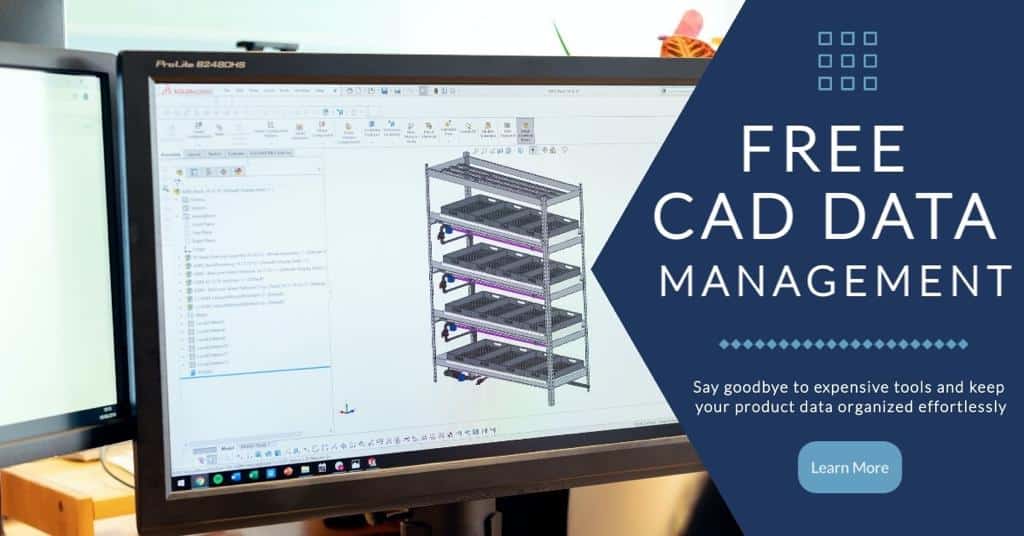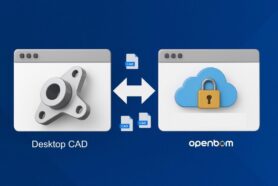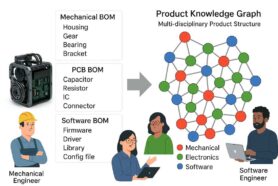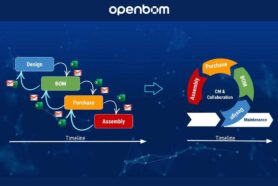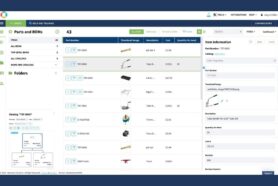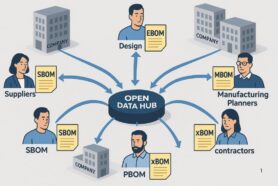
In today’s rapidly evolving manufacturing landscape, the shift from a document-centric approach to a data-centric one is no longer just a business strategy; it’s a necessity for survival and growth. Speaking about data and cloud is slowly becoming a norm, but this is also a place where you can find a lot of differentiation factors in modern data management systems and data management tools.
With the recent introduction of OpenBOM Design Free Cloud Service, we’ve got many questions about what is the business behind providing a free cloud file management solution as a first step of the OpenBOM strategy. OpenBOM Design emerges as a trailblazer in this data management process transformation, offering manufacturers unlimited storage for free and equipping them with the tools needed to thrive in an increasingly data-driven world.
In this article, I’d like to dig more into the critical aspects of files to data transition, breaking down the why, the how, and the what it means for manufacturing companies using OpenBOM SaaS solutions.
Embracing Digital Transformation: Placing Data “in the Middle”
The overarching trend of digital transformation has impacted virtually every industry, and manufacturing is no exception. At its core, this transformation revolves around reimagining processes with data as the linchpin. Instead of data residing in static documents, it should flow dynamically through all aspects of an organization, shaping decision-making, optimizing processes, and enabling innovation. Placing data “in the middle” of operations isn’t merely a buzzword; it’s a fundamental shift in how businesses operate in the 21st century.
In simple words, OpenBOM’s vision is to focus on how to create intelligent automation to build a product knowledge graph using modern database management systems and data management platforms. The data management process includes capturing data sets from data sources such as CAD files and others using OpenBOM flexible data management systems and transforming it into a graph database using a sophisticated database management system using polyglot persistence technology, which is a core of the OpenBOM platform.
Challenges in Data Management: Dominance of File Management
While the promise of data-centricity is compelling, the reality is that many manufacturing processes are deeply entrenched in document-centric workflows. Engineers and designers, for instance, have long been accustomed to working with files—drawings, 3D models, and specifications. Changing these ingrained habits can be a formidable challenge. Manufacturers must address this resistance through a combination of training, user-friendly tools, and a compelling vision for the benefits of data-centric operations.
The Power of Cloud and Scalability
OpenBOM Design’s cloud-based, multi-tenant architecture is a transformative force in manufacturing. It not only ensures data accessibility from anywhere but also provides the scalability and elasticity required in today’s data-intensive world. Unlike traditional file-based systems that can easily become bottlenecks as data volumes grow, OpenBOM’s architecture ensures that businesses can expand without data constraints.
Resolving the Pain of File Management
One of the persistent pain points in manufacturing has been the cumbersome nature of file management. Engineers and designers often struggle with version control, file naming conventions, and the challenge of ensuring everyone is working with the latest information. OpenBOM Design recognizes this pain and addresses it head-on by offering free synchronization of folders with files for design projects. This feature not only streamlines file management but also enhances collaboration and reduces errors.
Read more about it in the OpenBOM Design documentation.
Breaking Down Information Silos
Information silos are a common affliction in manufacturing organizations. Different departments or teams often have limited visibility into each other’s data, which can lead to inefficiencies, miscommunication, and costly delays. OpenBOM Design excels in breaking down these silos by capturing data automatically and facilitating seamless communication between engineering, production, and procurement. This collaborative technology ensures that all stakeholders are on the same page, leading to faster decision-making, more efficient change management, and smoother approval processes.
Maximizing Data Value
Effectively managing data is only the first step; the true value of data lies in its ability to inform decisions and drive continuous improvement. OpenBOM Design goes beyond data storage and retrieval, providing advanced dashboards that offer insights into various facets of the manufacturing process. Whether it’s item management, purchasing intelligence, change impacts, or cost comparisons, these data-driven insights empower manufacturers to make informed decisions, optimize operations, and stay competitive in an ever-changing market.
Conclusion: Transforming Manufacturing with Data Intelligence
OpenBOM Design’s mission is to empower manufacturing companies to harness the full potential of data intelligence. This transformation journey begins with effective file management, progresses to the management of critical product data such as items and Bills of Materials (BOMs), and culminates in the intelligent use of data to drive innovation and efficiency. OpenBOM Design’s commitment to offering unlimited storage for free represents a significant leap toward democratizing data intelligence in manufacturing, ensuring that companies of all sizes have the tools they need to thrive in an increasingly data-centric world.
REGISTER FOR FREE and start exploring OpenBOM Free Design Solution and learn how you can transform your manufacturing business.
Best, Oleg
Join our newsletter to receive a weekly portion of news, articles, and tips about OpenBOM and our community.


